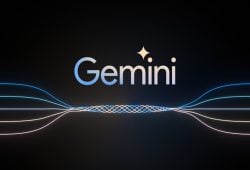
Through its OpenAI-powered search chatbot, Microsoft has decided to “explore” new ad income streams by monetizing Bing Chat. The tech giant has announced that it is soon adding adverts to its AI-powered Bing search engine.
In a blog post devoted to Bing’s objective to deliver more engagement to publishers, Yusuf Mehdi, Microsoft’s Corporate Vice President provided details of the approach. In the post, Mehdi said in conclusion, “To share ad revenue with companies whose content contributed to the conversation, we are also experimenting with integrating advertisements in the chat experience.”
Not all Bing users have access to this service yet. Debarghya Das, the original developer at Glean, took a screenshot of how the adverts currently appear and posted it to Twitter.
Similar to how citations are displayed, the adverts show up in search results as a little blue superscript word next to a keyword. It is still unclear whether the ads automatically generate the information or whether businesses are paying to have an advertisement displayed next to search-related content.
According to Caitlin Roulston, Microsoft’s director of communications, there will be “variability” in the way the adverts appear as testing goes on.
The announcement follows Microsoft’s years-long attempt to redesign its search engine, which for a long time lagged behind Google before receiving a boost from OpenAI’s GPT-4. Bing and OpenAI partnered in 2019 and unveiled their AI-powered search engine in February of this year.
How monetizing Bing chat with ads will affect user experience
As Microsoft tests the use of advertisements in its GPT-4-powered search engine, the long-term effects of this monetization strategy on the user experience are still unknown.
Although the sponsored responses are clearly identified as advertisements, some users have expressed concern about the inclusion of adverts in the search experience. The long-term effects of this monetization model on search advertising and user experience require further investigation.
Microsoft must ensure the user is aware of the offered product or service, even though search engines and agents are a necessary component of a business strategy and must be profitable.
The fact that this new advertising cannot be controlled using existing technologies makes it a more serious adverse effect. It would be good to see advertising more effectively integrated into search agents without undermining user confidence as the paradigm of ads as predictable items in identified locations comes to an end.
Bing Chat is offering publishers a fresh business opportunity
Bing currently has more than 100 million daily active users, according to the business.
About 100 million talks and other unique scenarios are boosting engagement.
The company’s claim that out of the millions of users in Preview, one-third are brand-new to Bing, offers publishers a fresh business opportunity.
The tech giant gave updates on their objectives, methodology, and early progress, which it would be bringing to the AI chatbot, after noticing the support the Bing chat is receiving.
“In this new world of search, our priority is to boost publisher traffic. That is one of our top priorities, and we gauge our success in part by the volume of traffic we direct from the new Bing. Second, we want to boost publisher revenue. By introducing new services like chat and answers and by setting the bar for future advertising in these new mediums, we hope to increase traffic to them, ” the business stated.
Should training GPT-4’s successors take a pause?
Microsoft’s statement comes as the IT world is increasingly warning against the full-throttle development of potent AI systems like GPT-4.
The Center for AI and Digital Policy (CAIDP), a nonprofit based in Washington, DC, and led by privacy defender Marc Rotenburg, has filed a formal complaint with the US Federal Trade Commission (FTC) asking it to look into OpenAI and halt the use of large language models like GPT-4 for commercial purposes, alleging that the technology violates consumer protection laws.
“The creation of AI products is at a critical stage. We are aware of the possibilities and are in favor of the investigation. Yet, there is a severe risk to businesses, customers, and public safety without the essential protections put in place to curtail prejudice and deception, according to CAIDP chair and research director Merve Hickok in a press statement.
A day after the Future of Life Institute issued an open letter with more than 1,000 signatures asking for a six-month moratorium on the creation of AI systems more powerful than GPT-4, the FTC filed its complaint. Elon Musk and Yoshua Bengio were two of the signatories, along with other notable figures in technology and artificial intelligence.










